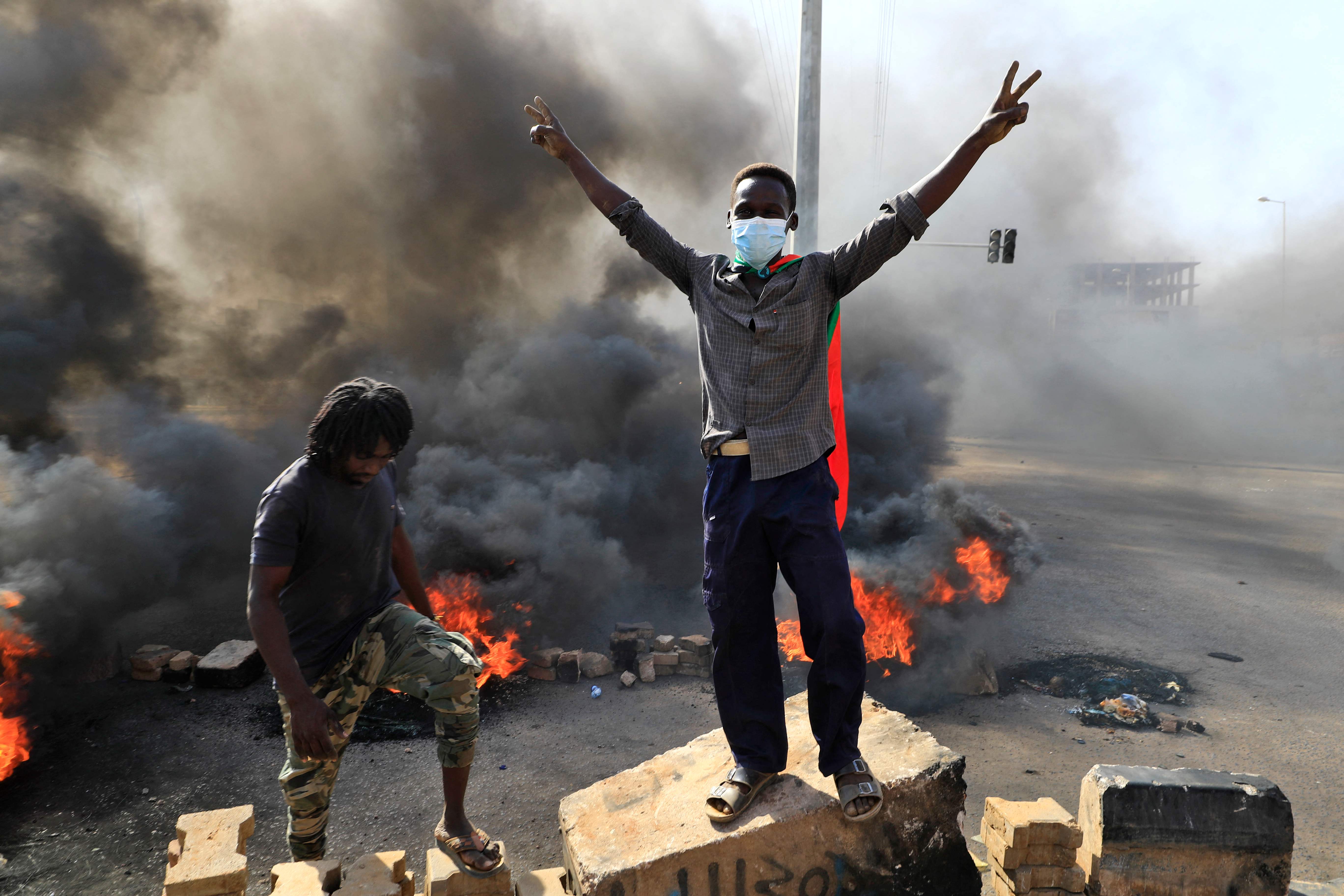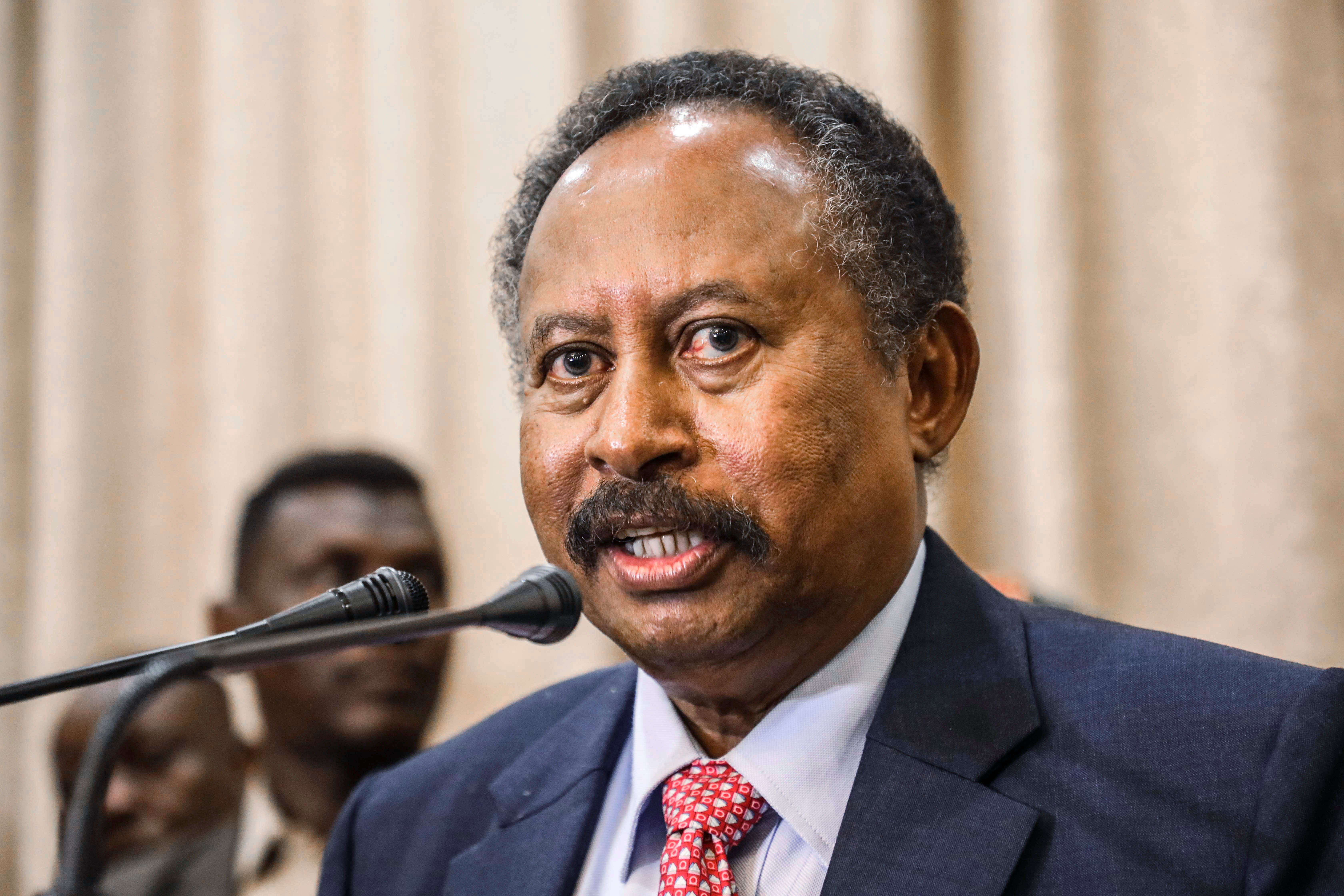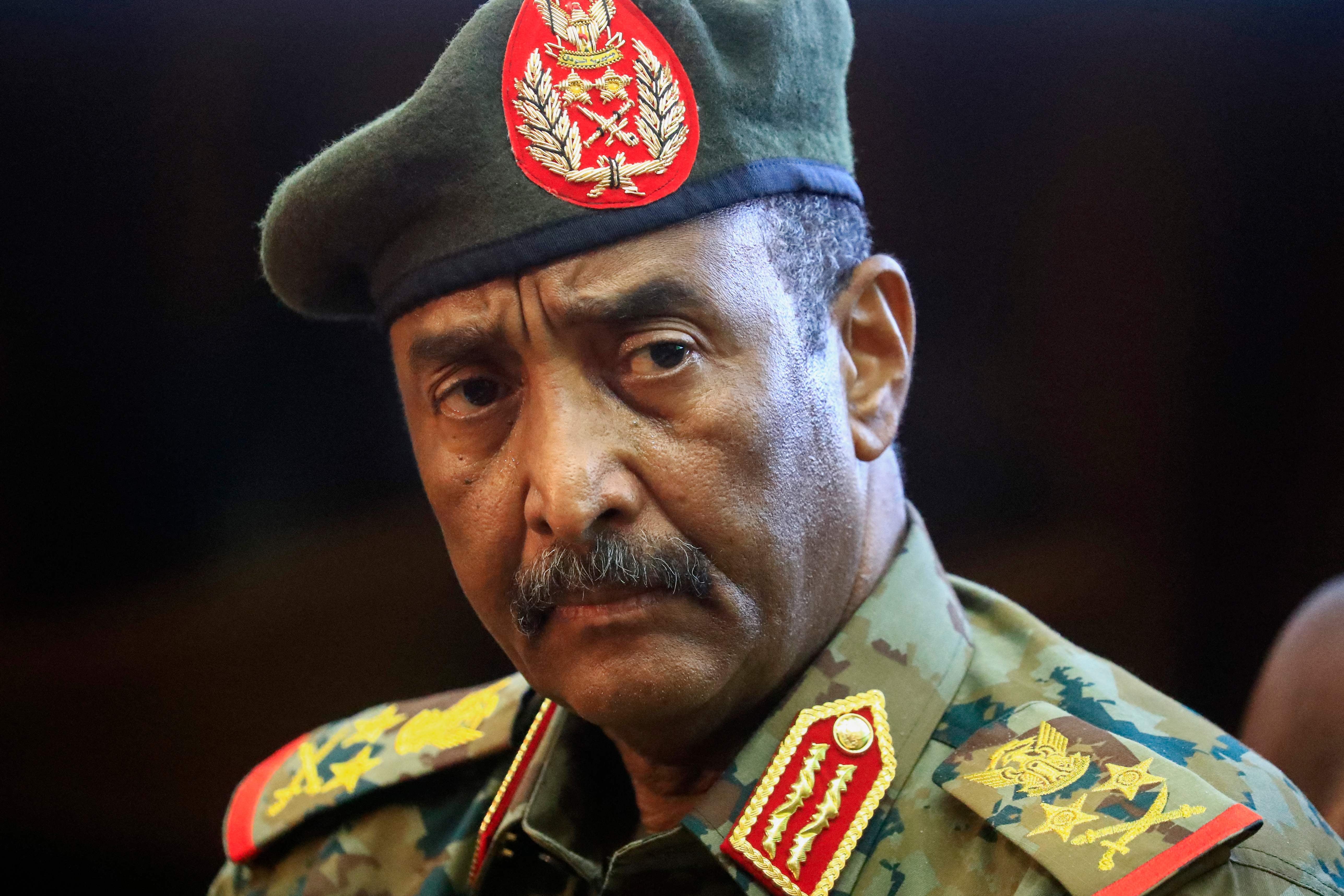Your support helps us to tell the story
From reproductive rights to climate change to Big Tech, The Independent is on the ground when the story is developing. Whether it's investigating the financials of Elon Musk's pro-Trump PAC or producing our latest documentary, 'The A Word', which shines a light on the American women fighting for reproductive rights, we know how important it is to parse out the facts from the messaging.
At such a critical moment in US history, we need reporters on the ground. Your donation allows us to keep sending journalists to speak to both sides of the story.
The Independent is trusted by Americans across the entire political spectrum. And unlike many other quality news outlets, we choose not to lock Americans out of our reporting and analysis with paywalls. We believe quality journalism should be available to everyone, paid for by those who can afford it.
Your support makes all the difference.Sudan’s ruling general has defended his decision to overthrow the country’s transitional government saying he prevented “civil war” and added that the prime minister he overthrew was not arrested but being held “for his own safety”.
General Abdel Fattah al-Burhan said other ministers that the army detained could face trial despite protests mounting in the streets.
He denied his actions are a coup and has vowed to push ahead with an elections timetable.
Prime minister Abdalla Hamdok was placed under arrest, alongside several other senior civilian officials and political figures on Monday. The whereabouts of many of them are still unknown. General Burhan said the prime minister was in good health.
The army then closed entrances, bridges and the airport in the city, while witnesses told The Independent that phone and internet lines were cut, shops shut and people were panic buying bread.
The move comes under a month before General Burhan was scheduled to hand leadership of a ruling council to civilian rule, decreasing the power of the military.
There have been mass protests in Sudan against the army’s move, which were met with force. The security forces fired into crowds, killing at least seven people and injuring over 100 more, according to a health ministry official.
It has also sparked uproar abroad. The Biden administration has suspended $700m (£508m) of vital aid to the cash-strapped nation and the United Nations Security Council (UNSC) called an emergency closed-door meeting on Tuesday to discuss the takeover.
Burhan denied the approaching deadline for handing over power to a civilian was the reason behind his actions, instead alleging quarrels and divisions among political factions were threatening the integrity and security of the country.
He has vowed to hold elections scheduled for July 2023.
“The dangers we witnessed last week could have led the country into civil war,” Burhan told a televised news conference in an apparent reference to demonstrations against the prospect of a military takeover.
“The whole country was deadlocked due to political rivalries. The experience during the past two years has proven that the participation of political forces in the transitional period is flawed and stirs up strife.”
The military seized power more than two years after a 2019 popular uprising forced the overthrow of longtime autocrat Omar al-Bashir.
Since then the country has been ruled under a power-sharing agreement between its civilians and military leaders.
Washington suspended hundreds of millions of dollars of emergency assistance warning it “will not hesitate” to take further action against those behind the coup.
Later White House national security adviser Jake Sullivan said the Biden administration is looking at a full range of economic tools to respond to the military takeover and has been in close contact with Gulf countries.

The European Union, the UN and the Arab League have all urged the country’s generals to release the officials. An emergency UN meeting on Tuesday was called for by the United States, United Kingdom, France, Ireland, Norway and Estonia, who have all expressed their alarm at the coup.
Ahead of the meeting UN chief Antonio Guterres decried the military’s action and what he called “an epidemic of coup d’Etats” in the region, urging restraint and the 15-member Security Council to act to effectively deter them.
A health official, meanwhile, told AFP that seven people had been killed and 140 injured as security forces cracked down on protesters who took to the streets against the move. Sudan’s Doctors Committee put the death toll at four.
The Facebook page for the office of the prime minister, apparently still under the control of Hamdok’s loyalists, called for Hamdok’s release and that of the other civilian leaders.
Hamdok remains “the executive authority recognised by the Sudanese people and the world”, it said. It added that there was no alternative other than protests, strikes and civil disobedience.
Monday’s takeover was the dramatic conclusion of months of unrest in the country. In September, Khartoum announced it had thwarted a separate coup attempt by civilian and military plotters linked to Bashir’s ousted regime.
In the same month protests by tribes in eastern Sudan blocked trade through the key hub of Port Sudan. Then ten days ago a splinter faction of the main civilian protest bloc held rallies demanding a military government.

Sudanese diplomats told The Independent after this a list of those wanted for arrest was drawn up and eventually circulated as early as five days ago.
The UN special envoy for Sudan, Volker Perthes, warned reporters that because of this there was a serious risk of “more violence or more clashes”.
On Monday he said some demonstrators tried to enter army headquarters in Khartoum and “we have then seen shooting”.
He added that leading up to the coup he and the US envoy Jeffrey Feltman had lobbied hard for dialogue and calm in parallel meetings with Sudanese political and military figures.




Join our commenting forum
Join thought-provoking conversations, follow other Independent readers and see their replies
Comments